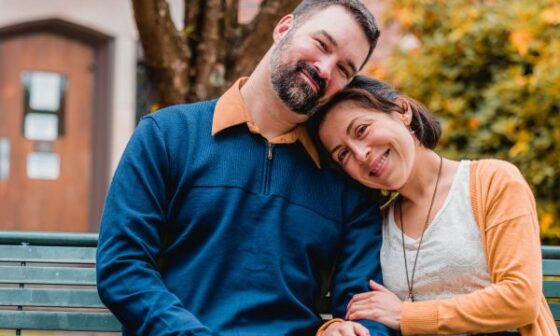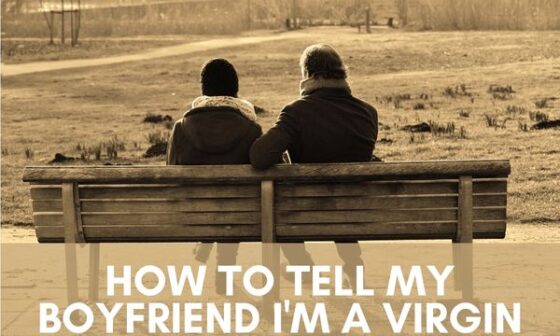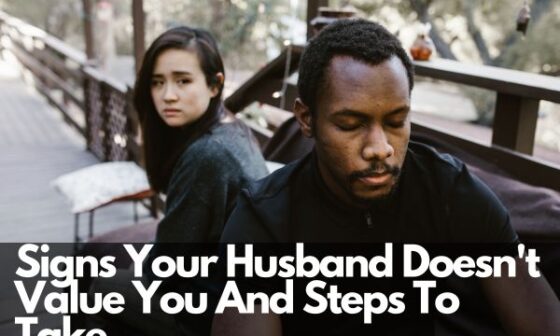The Covid-19 vaccine has become a crucial tool in combating the spread of the virus and returning to a sense of normalcy. However, not all individuals share the same enthusiasm or trust in vaccines. This difference in opinion is particularly prevalent among couples, who may find themselves at odds regarding the Covid vaccine. With the prevalence of online platforms like Reddit, individuals have found spaces to express their viewpoints and engage in discussions, including those related to vaccines.
Couples Who Disagree About Covid Vaccine Reddit
On Reddit, discussions about couples disagreeing on the COVID-19 vaccine have surfaced. These conversations highlight diverse viewpoints, with some partners supporting vaccination while others are hesitant. Concerns vary from vaccine safety and misinformation to individual autonomy. Some share strategies for respectful conversations, emphasizing open dialogue and understanding. It reflects the broader societal dialogue on vaccines and relationships, underlining the importance of communication in navigating differences.
Reasons for Disagreement
1. Differing opinions on vaccine safety and efficacy
One of the primary reasons for disagreement between couples regarding the Covid vaccine is their differing opinions on its safety and efficacy. While some individuals trust the scientific evidence supporting the vaccine’s effectiveness, others may have concerns about potential side effects or believe in alternative treatments.
2. Influence of misinformation and conspiracy theories
Misinformation and conspiracy theories have played a significant role in fueling vaccine hesitancy. Couples may encounter conflicting information on social media platforms like Reddit, which can create confusion and lead to disagreements. False claims and misleading narratives can undermine trust in the vaccine and further divide couples.
3. Trust issues with the healthcare system
Some individuals harbor deep-rooted mistrust in the healthcare system, leading to skepticism about vaccines. This lack of trust can stem from historical injustices, personal negative experiences, or a general skepticism towards institutions. Couples with differing levels of trust in the healthcare system may find it challenging to find common ground on the Covid vaccine.
4. Varying risk perceptions
Some individual couples may have differing levels of concern about contracting the virus or experiencing severe symptoms. These differences in risk perception can influence their attitudes towards vaccination, resulting in disagreements.
Communication Challenges
1. Difficulty in discussing sensitive topics
Discussions about the Covid vaccine can evoke strong emotions and personal beliefs. Couples may find it challenging to have constructive conversations about such a sensitive topic without it turning into an argument. Fear of judgment or conflict can hinder open communication.
2. Emotional factors affecting communication
Emotions such as fear, anxiety, and frustration can significantly impact communication between couples. Strong emotions can lead to defensive behaviors, hostility, or dismissive attitudes, making it difficult to have productive discussions about the Covid vaccine.
3. Strategies for effective communication
To address communication challenges, couples can employ strategies such as active listening, empathy, and patience. Creating a safe and non-judgmental space for open dialogue can help foster understanding and bridge the gap between differing opinions.
Impact on Relationships
1. Increased conflict and tension
Disagreements about the Covid vaccine can escalate into conflicts that strain relationships. Continuous arguments and heightened tension can erode the emotional connection between partners, leading to a decline in relationship satisfaction.
2. Trust issues and breakdown in communication
Vaccine disagreements may give rise to trust issues within the relationship. Lack of trust can extend beyond vaccine-related matters, impacting overall communication and shared decision-making processes.
3. Potential long-term effects on the relationship
Persistent disagreements about the Covid vaccine can have long-term effects on the relationship. If left unresolved, they may contribute to a growing divide between partners, affecting other aspects of their lives together.
Seeking Common Ground
1. Finding shared values and goals
Identifying shared values and goals can help couples navigate their differences on the Covid vaccine. Understanding the underlying motivations and concerns can lead to finding common ground and working towards shared objectives.
2. Seeking professional guidance
In some cases, seeking professional guidance from a therapist or counselor can be beneficial. A neutral third party can help facilitate productive discussions and provide strategies to manage disagreements.
3. Compromising and respecting individual choices
Respecting each other’s autonomy and choices is vital in maintaining a healthy relationship. Couples can explore compromises that acknowledge and address concerns while still prioritizing the wellbeing of both individuals and the broader community.
The Importance of Respect and Empathy
1. Understanding each other’s perspectives
Empathy plays a crucial role in resolving disagreements about the Covid vaccine. Couples should make an effort to understand each other’s perspectives, considering personal experiences, fears, and values that shape their opinions.
2. Practicing active listening
Active listening involves giving full attention to one another and demonstrating a genuine interest in understanding the other person’s viewpoint. By actively listening, couples can foster a sense of validation and create an environment conducive to productive discussions.
3. Supporting each other’s decisions
Ultimately, it is essential for couples to support each other’s decisions regarding the Covid vaccine. Even if they disagree, demonstrating support and understanding can help strengthen the relationship and maintain a sense of unity.
Conclusion
Disagreements between couples about the Covid vaccine can be a challenging and emotionally charged issue. It is crucial for partners to approach these discussions with empathy, respect, and open-mindedness. By understanding the reasons behind their differing opinions, employing effective communication strategies, and seeking common ground, couples can navigate this complex issue while preserving their relationship. It is through compassion and understanding that couples can find strength and resilience amidst the challenges posed by the pandemic.
FAQs (Frequently Asked Questions)
1. How can I convince my partner to get the Covid vaccine if they are hesitant? Convincing a hesitant partner requires empathy, patience, and providing reliable information from trusted sources. Engage in open and respectful conversations to address their concerns.
2. What can I do if my partner refuses to get vaccinated against Covid-19? While you cannot force someone to get vaccinated, continue to communicate and share your concerns. Focus on finding common ground and maintaining a safe environment for both individuals.
3. Is it possible to have a healthy relationship if we disagree about the Covid vaccine? Disagreements are common in relationships, and differing opinions on the COVID-19 vaccine are no exception. The key is to communicate openly, respect each other’s choices, and find ways to support one another.
4. Can disagreements about the COVID-19 vaccine lead to a relationship breakup? Disagreements about the Covid vaccine alone are unlikely to cause a breakup. However, persistent conflicts and breakdowns in communication can strain the relationship if not addressed constructively.
5. Should I end my relationship if my partner refuses to get vaccinated? The decision to end a relationship is personal and complex. It is important to consider various factors, including your values, priorities, and the relationship’s overall health. Communication and seeking professional guidance can also be helpful in making such decisions.







